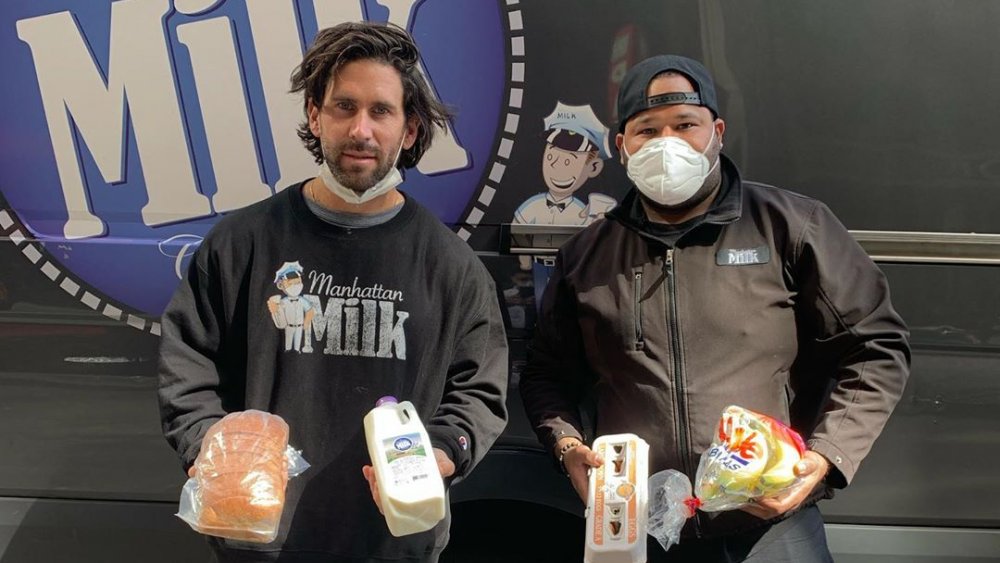The Real Reason The Milkman Is Making A Comeback
The grocery delivery trend has surged in recent weeks as people stay home to prevent the spread of COVID-19. But way before the internet — or even computers — milkmen brought milk, eggs, and other perishables to people's doorsteps. In the 21st century, milkmen were becoming a relic of the past. By 2005, only 0.4 percent of milk was home-delivered (via NPR).That low number likely began to increase a little in 2014. People wanting the farm-to-table experience were breathing new life into milk delivery. Now, during the pandemic, milk delivery is making another comeback.
Wade's Dairy in Bridgeport, Connecticut stopped delivering milk in 1992, due to lack of interest. In response to the recent demand, however, the farm started delivering to homes in COVID-19 lockdown (via Fox News). Wade's revived delivery service has brought in $10,000 of new business a week — a lot of it in oat milk, something the milkmen of yore didn't offer.
Matt Marone of Westchester Milk in New York is among the new wave of milkmen. He's been delivering milk for more than 20 years, although the bulk of his business went to schools and daycares, which are now closed. So, Marone is pivoting to home delivery, which had doubled in just a week or two (via CBS New York). Meanwhile, Mitch the Milkman, on Long Island, has seen business increase 600 percent.
Milkmen are part of the broader grocery delivery surge
The milkman's resurgence is part of the broader move toward online ordering and delivery of groceries, as consumers wait out the COVID-19 pandemic at home. Grocery delivery started taking off before stay-at-home orders were in place. Sales doubled in 2018 compared to the previous two years. For 2020, Business Insider predicts grocery delivery will double again from its 2018 figure, and that it will continue to rise in the coming years.
It remains to be seen whether the milkman will follow the same trend. Maybe the milkman of the future will work for Amazon or Instacart. These big delivery players, and others, haven't been able to keep up with the sudden demand spurred by the pandemic. An Instacart spokesperson told The Washington Post that the company saw what should have been two to four years of growth in just two to four weeks. Customers had been waiting weeks for a delivery slot, as Amazon, Walmart and others lacked the capacity to meet demand.
The pressure is felt all the way down to the level of the mom-and-pop (or son-and-pop) milk distributor, here as well as abroad. The North England milkmen I.W. Critchly & Son posted a plea to its customers on Facebook in early April: "Just to let everyone know, we are a small family business with one man operating the office after making deliveries. So please be patient."

